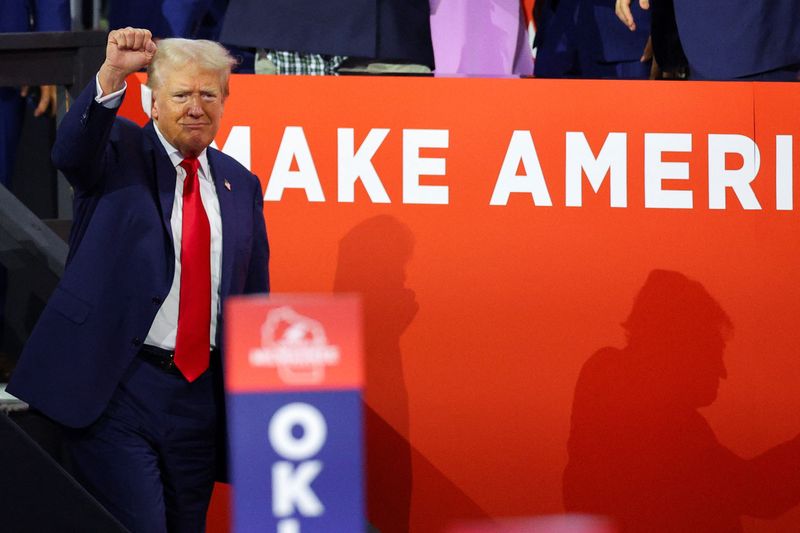BCA Research has assigned a 55% probability that Donald Trump will win the U.S. presidency in the upcoming November election, marking a contrarian stance compared to other forecasts.
The outlook is rooted in BCA’s analysis of the current political and economic landscape, where they believe that Trump's potential victory could lead to a full Republican sweep of both the White House and Congress. This scenario, though contested, remains BCA's “most likely” outcome.
The 55% probability marks a slight downgrade from an earlier 60% estimate, yet Trump remains the favored candidate in this closely contested race, according to the investment research firm.
Vice President Kamala Harris, who has recently taken over as the Democratic nominee, also presents a strong challenge, buoyed by her status as part of the incumbent party. However, BCA points out that Harris is statistically tied with Trump in key swing states, and factors such as rising unemployment and weaker polling among key demographics may hinder her chances.
“The loss of an incumbent president advantage with Biden dropping out, the uptick in unemployment in contested states, and the lackluster polling among key demographics, lead us to maintain our view of a Trump victory in the White House, though we downgrade his odds to 55% from 60%,” BCA strategists note.
The firm also breaks down the likelihood of various election outcomes. Within the 55% chance of a Trump victory, they assign a 50% probability to a full Republican sweep – control of the White House, Senate, and House of Representatives – and a 5% chance of Trump winning the presidency with a mixed Congress.
In contrast, if Harris were to win, BCA sees a 45% probability, with a higher likelihood of a Republican or mixed Congress rather than a Democratic sweep.
Should Trump win, strategists anticipate notable economic and sectoral impacts. Trump's policies, characterized by fiscal stimulus and deregulation, are expected to be inflationary, leading to higher budget deficits and long-term inflation.
Sectors that would benefit under a Trump administration include Energy, Financials, Industrials, Materials, and Real Estate, all of which are tied to his proposed policies such as increasing domestic energy production and infrastructure investments.
On the other hand, defensive sectors like Health Care and Utilities are highlighted by BCA as prudent choices for investors, given the expected near-term economic slowdown and market volatility leading up to and following the election.
BCA stresses that regardless of the election outcome, these sectors offer downside protection and are likely to outperform in the current uncertain environment.
It also highlights that equity returns are typically softer after a change in incumbency, as markets adjust to new policies and leadership. Historically, sectors that outperformed under the previous administration often underperform when a new party takes office, while lagging sectors may see a rebound.
